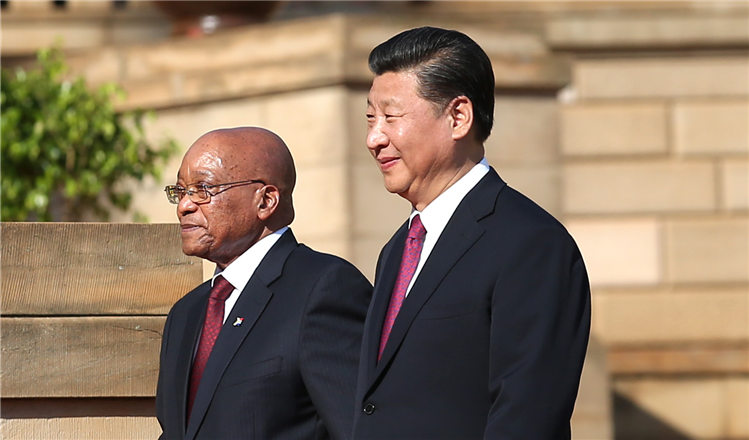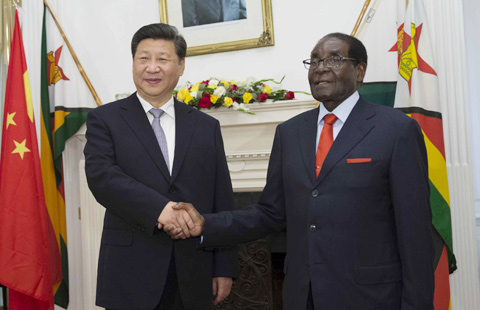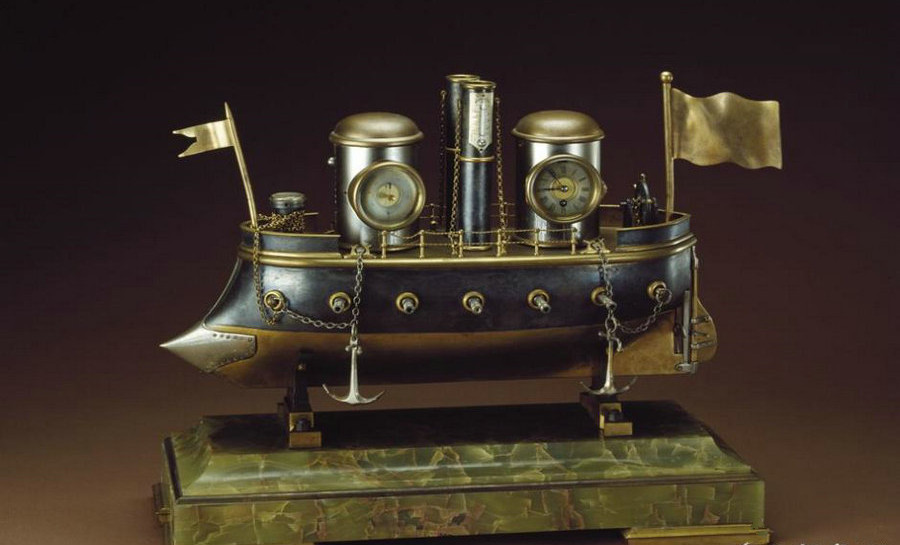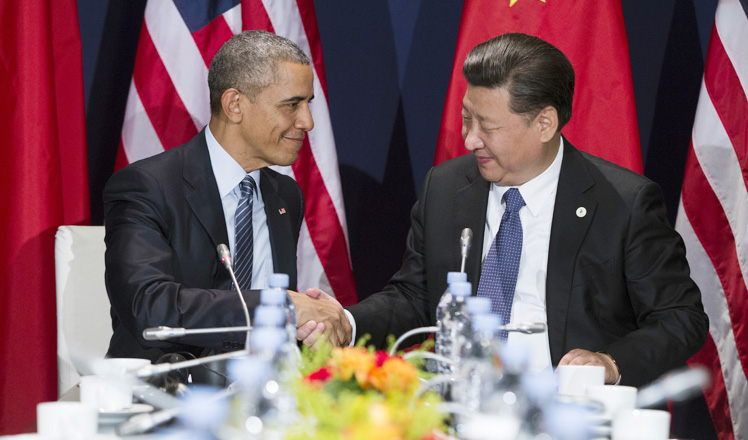Chinese carbon-capture grass cited as tool against climate change
Updated: 2015-12-03 07:53
By Xinhua in Changsha(China Daily)
|
||||||||
A hardy, fast-growing grass known as lyu xin (green heart) is being hailed as a new addition to the world's arsenal in the fight against climate change.
The grass can grow 5 meters in two months and acts like a carbon sponge, capturing much higher levels of carbon dioxide than trees, said Lei Xuejun, director of the Carbon Cycle Research Center at the Central South University of Forestry and Technology in Hunan province.
Lei, who is in Paris this week for the global climate change conference, COP 21, first cultivated the hybrid grass in 2013 and continues to lead the research. The long-term affects of the grass are still being studied.
Hunan's Changsha county was quick to identify the potential of the grass as part of its zero-carbon strategy. Over the past two years, Changsha has allocated over 20 hectares for planting lyu xin and given Lei's team financial support to optimize the carbon-capture vegetation.
Similar in appearance to sugar cane or sorghum, the grass can with stand high temperatures, drought and poor soil. It regrows rapidly after cutting, and can grow three to five times a year. The crop can be ground and processed into standard carbon products like paper, construction materials and fertilizers. Every hectare of grass can absorb over 200 metric tons of carbon dioxide every year, whereas trees absorb 15 tons annually, the China Quality Certification Center said.
The grass can lower the cost of carbon capture and storage, and reduce the concentration of carbon dioxide in the atmosphere, said Xu Heping of the Ministry of Science.
There are, however, downsides to the grass. The speed at which it grows could have negative side effects, as invasive species have been shown to unsettle the ecological balance, said Wang Guangjun, a professor of ecology and Lei's colleague, told a Hunan newspaper.
Tan Xiaofeng, a botanist at the university who specializes in woody plants, also voiced reservations. Generally speaking, he said, the carbon absorption of grass is much weaker than woody plants. As such, the actual effects of the grass will still need to be proven over a longer period of time, Tan said.
Changsha hopes that by expanding the grassland and reducing carbon emissions, the industrial county will achieve zero-carbon growth, said Yang Yiwen, Party chief of the county.
(China Daily 12/03/2015 page7)
- New York orchestra a hot ticket in China
- Key consensus reached on cybercrimes
- White House rejects Pentagon plan to close Guantanamo prison
- Myanmar president meets Aung San Suu Kyi for post-election dialogue
- BRICS media leaders to secure louder voice
- Bilateral trade growth due to continue, minister says

 Chinese, South African presidents hold talks to cement partnership
Chinese, South African presidents hold talks to cement partnership
 China, Zimbabwe agree to boost cooperation
China, Zimbabwe agree to boost cooperation
 First lady visits Africa's 'new window' on China
First lady visits Africa's 'new window' on China
 BRICS media leaders to secure louder global voice
BRICS media leaders to secure louder global voice
 Western science in the eyes of Chinese emperors
Western science in the eyes of Chinese emperors
 Top 10 smartphone vendors with highest shipments in Q3 2015
Top 10 smartphone vendors with highest shipments in Q3 2015
 A deepening friendship
A deepening friendship
 Xi, Obama pledge to manage differences in constructive manner
Xi, Obama pledge to manage differences in constructive manner
Most Viewed
Editor's Picks

|

|

|

|

|

|
Today's Top News
Chinese bargain hunters are changing the retail game
Chinese president arrives in Turkey for G20 summit
Islamic State claims responsibility for Paris attacks
Obama, Netanyahu at White House seek to mend US-Israel ties
China, not Canada, is top US trade partner
Tu first Chinese to win Nobel Prize in Medicine
Huntsman says Sino-US relationship needs common goals
Xi pledges $2 billion to help developing countries
US Weekly

|

|








